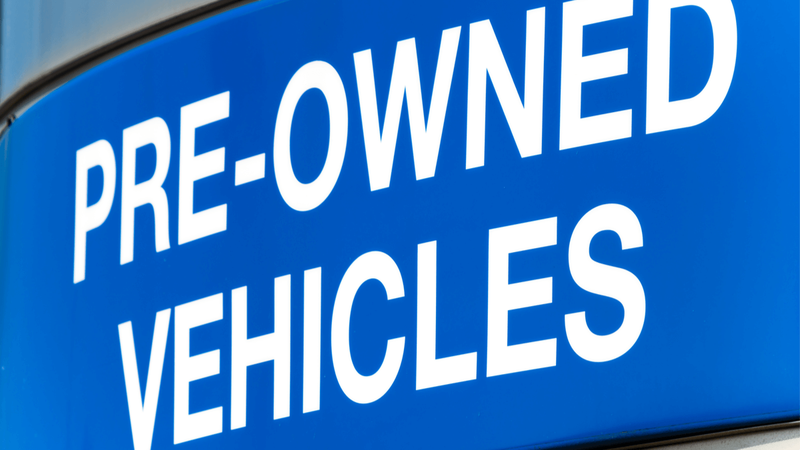A global pandemic may seem like the perfect time to buy a used vehicle. Maybe you used to take the subway to work, but now you work from home. Perhaps you had some money stashed away for a dream vacation and now staying local is looking more and more appealing.
Owning a vehicle has many perks but finding the right car takes some effort (even in non-pandemic times). You'll want to factor in details like the car's fuel efficiency, car insurance, safety features, and reliability before buying.
Still, armed with all your research, you may find good used cars in short supply.
It seems purchasing a used vehicle has been top of mind to many Canadians over the past several months; supply is having trouble keeping up with demand. While the early days of the pandemic caused used vehicle prices to plummet as people hunkered down at home, more recent buyer interest prompted values to rise last summer.
Slow start led to pent-up demand
A survey of used car dealers conducted by Desrosiers Automotive Consultants found that nearly 70% of dealers said the price of a used vehicle jumped after reopening last summer, after a slow spring when most used car dealerships were forced to close their doors to the public.
Used-vehicle supply in Canada dwindled due to reduced sales (which affected the number of trade-ins), a low number of repossessions during the pandemic, and low lease returns due to lease extensions, which kept prices up.
Now demand is way up, with trucks and SUVs by far the most popular choice, since international travel restrictions have prompted some households to invest in boats and camping trailers that require towing.
Consider buying online
With lockdowns happening again in several parts of Canada, in-person used car shopping is more complicated, and many are turning to online buying instead.
According to the results of an Ontario Motor Vehicle Industry Council survey, about 13% of drivers say they hurried their recent in-person car purchase because of safety concerns. Fortunately, dealers can now legally sign a deal online (which was previously not allowed). Handling of documents electronically, more extensive use of phone calls instead of in-person showroom visits, and online sales are likely all features that are here to stay. Scheduled appointments for both car buying and maintenance have become the norm, and fewer test drives are also taking place.
If you buy a car online, especially without a test drive, opt for a vehicle you are already familiar with, such as a friend’s car or one you may have rented in the past. Knowing things like seat comfort, sightlines, trunk capacity, and rear-seat room are important factors.
Buying online allows you to compare several different vehicles, variables, and dealerships – and ask questions – without leaving your home. Sites like ontariocars.ca (run by the Used Car Dealers Association of Ontario) offer a comprehensive way of searching dealerships, makes, models and prices, as well as offering other helpful resources.
Used cars 101
Buying a used car can be daunting anytime, as there are always risks involved, especially if the car’s history isn’t clear. Before purchasing a used car, there are some simple ways to make sure you don’t make mistakes you might regret later. Other things to look for include:
The full cost of ownership
Buyers typically look for the usual items when buying a car – style, features, performance, and gas mileage. Look at the big picture and include car maintenance and insurance coverage in the cost of owning the car. For example, imported cars may cost more to maintain than domestic cars. And the same goes for insurance, as the type of vehicle may impact your insurance rate.
Vehicle history reports
A vehicle history report is a great way to get a look into a car’s past. Listed on the report are important things like:
- Any accidents that were reported.
- Maintenance done by the dealership.
- How many owners a car has had.
- Liens on the car.
These things can tell a potential buyer a lot about where a car has been and what sort of care it has had. It also gives warnings about potential problems with the engine or significant damage sustained in an accident.
Most used car dealers will be happy to provide a vehicle history report on any car they have for sale at no charge. When buying a used car from a private party, it is still possible to obtain a copy, although there is likely a charge to get it.
Pre-purchase inspections
Having an inspection done is the best way to know what a used car has to offer – or to hide. Most dealers or mechanics will perform the inspection for a flat fee, and the buyer will usually be responsible for paying it.
Don't assume that because a dealer is selling the car, it has been thoroughly inspected. Most dealerships do some sort of inspection, but it may not be as thorough, and things can be missed. A pre-purchase inspection by a trusted mechanic may disclose damage that might not be in the vehicle history report.
Since it costs money to have a pre-purchase inspection done, it’s usually not worth it until you’ve have narrowed down your choices. Use vehicle history reports and research on each vehicle to choose the car that is of most interest, and then have the inspection done as a final step.
Whether you are buying your first car or simply buying your next car, shop around and do your research to avoid any surprises.
